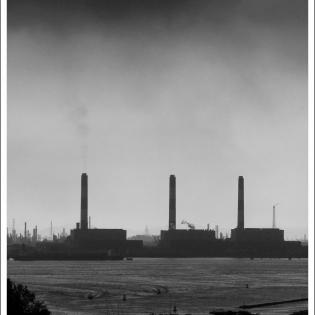Air Pollution and Asthma
Young people gain awareness of the negative effects of air pollution, especially asthma. They research and identify some of the sources of air pollution in the school and community and possible ways to improve air quality in these areas.
The learner will:
- identify negative effects of poor air quality and potential sources of air pollution.
- identify ways to act as environmental stewards in relation to air quality.
- American Lung Association. "Climate and Your Health" https://www.youtube.com/watch?v=tvmBJ0X5N5o
- American Lung Association. "Health Risks of Climate Change for People with Lung Disease" https://www.lung.org/getmedia/cfe2481d-1478-4cea-8a77-1ac3eb112e71/what-you-should-know-ways.pdf
- American Lung Association. "What Is Asthma?? https://www.youtube.com/watch?v=batzSytA1Y0
- Harvard School of Public Health. "Reducing Asthma by Tackling the Climate Crisis" https://www.hsph.harvard.edu/c-change/subtopics/climate-change-and-asthma/
Instructions
Anticipatory Set:
Ask the learners whether they have ever seen or felt evidence of air pollution. Listen to their stories about what poor air quality looks and feels like. They may be familiar with reports of air quality through their phone's weather app. Talk about why they think this information is important and who and what might be affected by poor air quality.
Effects of Air Pollution:
While air pollution affects us all, people with asthma are particularly sensitive to air pollution, which can trigger an asthma attack. There may be people who can share their experience with asthma, or they can research asthma causes and effects.
If possible, invite a guest to tell the group what asthma is and what factors can trigger it. This can be a doctor or a person who has asthma. See the Bibliography above for videos to show if an expert isn't available.
Identify Sources of Air Pollution:
Have pairs research and name potential sources of air pollution (cars, factories, power plants) and some major pollutants (ground-level ozone, sulfur dioxide, particulate matter, nitrogen oxide).
Challenge the learners to come up with ideas to reduce the amount of air pollution created by transportation, factories, and power plants. List their ideas on the display board.
Ask the learners how they think working to improve the quality of air at school, at home, and in the community promotes the common good. Common good involves "promoting the welfare of the community for the greater benefit of all."
Philanthropy:
Define philanthropy as "giving time, talent, or treasure for the common good."
Look again at the list of ideas on the display board for reducing air pollution (inside and outside). Have the learners label each of the ideas with the words time, talent, or treasure to show what they would be giving if they carried out these actions. Narrow the list to focus on ideas that are specifically about what they can do (with their time, talent, and treasure) rather than what can be done in general.
Help learners come to a consensus about which project they will carry out for an environmental service project. For example, they can use their time and talent to raise awareness of factors that increase air pollution and propose solutions. When people are informed, they can take action and act or vote for change.
Philanthropy Framework
-
Strand PHIL.I Definitions of Philanthropy
-
Standard DP 01. Define Philanthropy
-
Benchmark HS.1 Define philanthropy to include giving and sharing; volunteering; and private individual action intended for the common good. Explain how a volunteer individual/group can act for the common good.
-
-
-
Strand PHIL.II Philanthropy and Civil Society
-
Standard PCS 03. Philanthropy and Economics
-
Benchmark HS.13 Give examples of how philanthropy has reallocated limited resources through giving and citizen action.
-
Benchmark HS.5 Give examples of stewardship decisions throughout history and in current events.
-
Benchmark HS.9 Analyze a major social issue as a "commons problem" and suggest ways the civil society sector could help to resolve it.
-
-
Standard PCS 05. Philanthropy and Government
-
Benchmark HS.10 Discuss the results of private citizen voluntary action intended for the common good on public policy changes.
-
-
Standard PCS 07. Skills of Civic Engagement
-
Benchmark HS.2 Discuss a public policy issue affecting the common good and demonstrate respect and courtesy for differing opinions.
-
Benchmark HS.3 Participate in acts of democratic citizenship in the community, state or nation, such as petitioning authority, advocating, voting, group problem solving, mock trials or classroom governance and elections.
-
-
-
Strand PHIL.IV Volunteering and Service
-
Standard VS 01. Needs Assessment
-
Benchmark HS.1 Identify a need in the school, local community, state, nation, or world.
-
-
Standard VS 02. Service and Learning
-
Benchmark HS.1 Select a service project based on interests, abilities, and research.
-
-
Standard VS 03. Providing Service
-
Benchmark HS.2 Describe the goals of the project and their impact.
-
-
